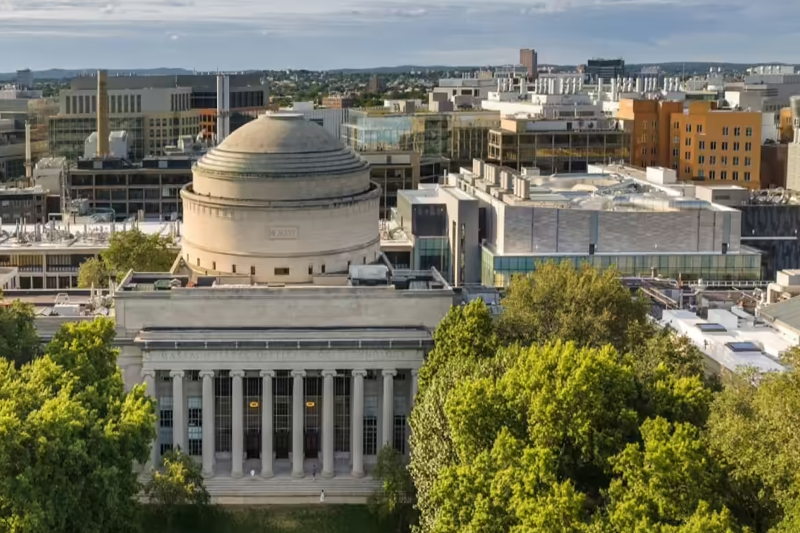
Forbes 2025 Rankings: Top U.S. Colleges Redefining Prestige Beyond the Ivy League
For generations, the Ivy League has been the default benchmark for academic excellence in the United States. But in today’s rapidly evolving educational landscape, prestige is no longer the exclusive domain of eight elite Northeastern schools. The 2025 Forbes “America’s Top Colleges” list shatters old assumptions and shines a light on institutions delivering world-class education, high returns on investment, and exceptional career outcomes—all beyond the Ivy League.
This year's rankings present a fresh narrative: one where public universities, liberal arts colleges, and research-intensive institutions are setting new standards in affordability, innovation, and long-term student success.
If you’re exploring higher education options in the U.S., here are the top-ranked colleges to consider—not for their legacy, but for what they tangibly offer in today's world.
1. Massachusetts Institute of Technology (MIT), MA
- Type: Private, Not-for-Profit
- Average Cost: $58,331
- Average Student Debt: $12,071
- Median 20-Year Alumni Salary: $196,900
- Grade: A+
At the top of Forbes' 2025 list, MIT continues to dominate with its unmatched blend of academic rigor, research innovation, and entrepreneurial culture. With one of the highest long-term alumni salaries and strong student retention, MIT exemplifies the future of practical, outcome-driven education. Its leadership in STEM, artificial intelligence, and biotechnology positions graduates to lead in some of the world’s most competitive industries.
2. University of California, Berkeley, CA
- Type: Public
- Average Cost: $25,951
- Average Student Debt: $6,529
- Median 20-Year Alumni Salary: $170,100
As the highest-ranked public university in the 2025 Forbes list, UC Berkeley proves that excellence doesn’t have to come at a premium. Known for its academic diversity and progressive research culture, Berkeley offers exceptional value with lower-than-average tuition and student debt—especially when compared to private institutions. The university excels in disciplines like computer science, engineering, business, and public policy.
3. Williams College, MA
- Type: Private, Not-for-Profit
- Average Cost: $64,176
- Average Student Debt: $8,171
- Median 20-Year Alumni Salary: $173,900
- Grade: A+
Williams College, a small liberal arts college, is making big waves nationally. Its strong emphasis on student-faculty interaction, critical thinking, and personalized education is paying off, as evidenced by its competitive alumni earnings. With an A+ grade and consistently high rankings, Williams illustrates how liberal arts institutions can rival large research universities in long-term value and impact.
4. Johns Hopkins University, MD
- Type: Private, Not-for-Profit
- Average Cost: $58,456
- Average Student Debt: $10,600
- Median 20-Year Alumni Salary: $146,200
- Grade: A+
Best known for its global leadership in medical and public health research, Johns Hopkins University continues to deliver strong undergraduate outcomes. Its emphasis on interdisciplinary learning, coupled with its extensive global network, gives students a unique advantage in both academics and career development. The institution also maintains a reputation for excellence in international studies, biomedical engineering, and public policy.
5. Vanderbilt University, TN
- Type: Private, Not-for-Profit
- Average Cost: $57,723
- Average Student Debt: $11,345
- Median 20-Year Alumni Salary: $151,500
- Grade: A
Vanderbilt University is one of the most consistent climbers in national rankings, thanks to its focus on academic quality, student well-being, and post-graduate support. Located in Nashville, the university blends rigorous academics with a vibrant campus culture. With strong earnings potential and comprehensive student support services, Vanderbilt is becoming a top-tier option for students seeking both intellectual challenge and a well-rounded college experience.
Why These Rankings Matter
The Forbes 2025–2026 rankings make one thing clear: success is no longer tied solely to Ivy League prestige. In fact, students today are encouraged to evaluate universities on tangible outcomes, such as:
- Affordability and manageable student debt
- Return on investment through long-term alumni earnings
- Career readiness and support services
- Academic innovation and research output
- Student experience and campus culture
These institutions demonstrate that excellence in education can be found across the country, at schools both big and small, private and public. It’s about fit, values, and the kind of impact students want to make—not just the name on the degree.
Conclusion
As college-bound students and their families navigate admissions in an increasingly competitive and costly environment, the Forbes 2025 rankings provide essential insights. They highlight schools that deliver real-world value, produce successful graduates, and prepare students for leadership in a changing world—all without requiring an Ivy League label.
In the end, the evolving landscape of higher education tells a more inclusive story: the geography of excellence is expanding, and the future lies with institutions that combine prestige with purpose.
So, whether you're planning to major in engineering, liberal arts, medicine, or public policy, these universities are proving that the best education may not always come from the usual suspects.


